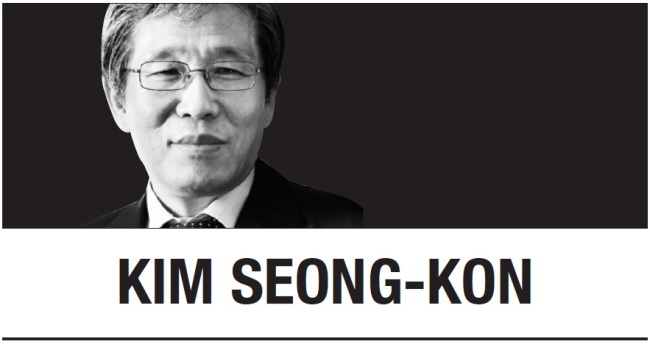 The title is a riff on Tennessee Williams’ prizewinning play “A Streetcar Named Desire” and the internationally-acclaimed British movie “A Street Cat Named Bob.” The former brilliantly portrays the conflict between fantasy and reality represented by Blanche and Stanley. The latter movingly depicts the beautiful friendship between a street musician and a street cat he accidentally picks up and takes care of. Both the play and the film have touched the hearts of many international readers and moviegoers.
The title is a riff on Tennessee Williams’ prizewinning play “A Streetcar Named Desire” and the internationally-acclaimed British movie “A Street Cat Named Bob.” The former brilliantly portrays the conflict between fantasy and reality represented by Blanche and Stanley. The latter movingly depicts the beautiful friendship between a street musician and a street cat he accidentally picks up and takes care of. Both the play and the film have touched the hearts of many international readers and moviegoers. Recently, I watched a Korean TV talk show discussing the problems of our society with reference to Barack Obama. Referring to Obama’s success and popularity as a US president, a former Korean lawmaker said, “Unlike Obama, we are gravely devoid of virtues of the humanities which are prerequisite to be a decent human being. We only have desires and sugarcoat them with “gukga,” which means the nation and “minjok,” meaning the people.
I could not agree with him more because it is undeniably true that we seriously lack rigorous training in the humanities, and as a result, we often cannot contain our emotions and mundane desires. To make matters worse, we tend to gild our emotions and desires with patriotism because in Korea we can easily justify everything as long as we don the mask of nationalism.
Perhaps that is why our society is plagued by unbridled emotions and unrestrained desires which can easily degenerate into sentimentalism and jealousy, and also avarice and resentment. Indeed, we tend to be easily emotional, spiteful, and jealous of those who are ahead of us and better than us. Still, however, we can conveniently justify even our personal vendetta in the name of social justice and national interest.
The process of justification is usually done by a loud propaganda or a social campaign. Like a street band, we pompously propagate our personal desires so they can be justified and approved by the crowd who are enchanted by the enthralling music and thus cannot be a good judge of the situation. Watching and hearing the street band playing music loudly, people are relieved because their desires can also be justified during the parade.
This can happen primarily because our education has failed. Unfortunately, we educate our students to focus only on “How to win and survive” rather than pondering on “How to live?” We teach our young students to become ruthless warriors, not noble knights. We teach our students how to mechanically memorize and pick the right answers in exams, instead of how to understand our country and the world.
The aforementioned former National Assemblyman said, “In other countries, even high school graduates are well grounded in the humanities. On the contrary, in Korea, even college graduates do not match their intellect and imagination.” Due to our undesirable tradition of scholars and writers ruling the nation during the Joseon Dynasty, many scholars of the humanities and even writers in Korea are still interested in seizing political power rather than educating students to become a decent human being. And due to the negative aspects of Neo-Confucianism, many scholars of the humanities and writers in Korea are inclined to join a faction and become involved in factional brawls.
Instead, we should have taught our students to be independent of factions and political power. We should have raised them to be like tigers, independent and not afraid of being alone. We should have taught them to go against the grain. Unfortunately, however, we have turned them into domestic birds that cannot fly and stick to their flock.
As a result, today we are hopelessly witnessing the outcome of our failure in liberal education. Young people in Korea do not listen to what older people have to say, dismissing their advice as old-timers’ nagging. However, if they are ignorant of history and turn a deaf ear to wise men’s warning, young people will have to pay for it dearly someday. If they do not learn from history, they will surely meet a nightmarish future. Then, it will be too late to regret.
We should teach our college students how to think critically about “how to live.” That is why we teach philosophy and religion at the College of Humanities. At college, we should also teach students how to understand other cultures and other people. That is what the departments of foreign languages and literatures do. We should teach them how to learn from history as well. That is why we have the history department in the College of Humanities. Regrettably, our college graduates are not well grounded in liberal education yet.
The outcome of such failure is disheartening. We do not seem to be interested in “living a worthwhile life of altruism” any more. We do not seem to understand the world or international politics well enough. And we do not seem to learn from the past at all. Instead, we have become selfish and ultra-nationalistic, and rely on a street band that plays loudly to hide and sugarcoat our desires.
We should restore our long-lost spirit of the humanities to gain profound insight into life and the world.
By Kim Seong-kon
Kim Seong-kon is a professor emeritus of English at Seoul National University and president of the Literature Translation Institute of Korea. He can be reached at sukim@snu.ac.kr. -- Ed.


















![[Today’s K-pop] Treasure to publish magazine for debut anniversary](http://res.heraldm.com/phpwas/restmb_idxmake.php?idx=642&simg=/content/image/2024/07/26/20240726050551_0.jpg&u=)